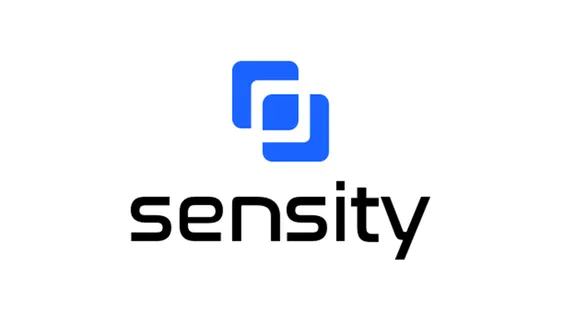
How KIN helps firms understand their AI needs
Helping Amsterdam firms see beyond the hype
With all the hype around artificial intelligence (AI), it’s easy to see why professionals might chase the white rabbit of this quickly developing tech down the rabbit hole. Who is there to help them negotiate this new world? In Amsterdam, that’s where Vrije Universiteit (VU) Amsterdam’s KIN Center for Digital Innovation comes in.
Director of KIN, Professor Marleen Huysman explains what they do. “We offer executive education specifically for professionals lost in the digital wonderland. We call it ‘beyond the hype’. There are so many tools out there, so managers and decision-makers need to work out if they need them and which one they might need.”
Huysman is certainly qualified to help businesses understand their needs. As well as being a founder of KIN, she is professor of knowledge and organisation at the VU, has a PhD in Business Economics, has published in top-tier journals and is currently working with the Dutch AI Coalition and the Amsterdam AI, technology for people programme.

“It’s all about helping businesses, whether that’s in AI or anything else.” The main bulk of that work is done at KIN, a large group of researchers studying digital innovations in organisations. As KIN’s director, Huysman heads up its ‘AI@Work Lab’. “It’s about 10 researchers studying how AI is impacting organisations. Not only how it impacts work but also the tech – how it’s designed, how it’s developed. We look at things like how developers work with the users. Do they know enough about the field they’re working in? We try to bridge that gap between the groups.”
Is AI changing how we work?
The AI team conduct in-depth research using ethnographic methodologies, usually associated with anthropological studies. It involves spending 1 to 2 years onsite, sitting with developers and users to fully understand their processes. If that sounds dull, think again: One KIN researcher has spent 2 years on a ride-along in Dutch police cars, another spends their time seeing surgeons save lives in operating theatres.
The hype around automation and fears that it ultimately could lead to the end of the world are, in Huysman’s humble opinion, ‘bulls***’ (she puts it very nicely). “But what we see is that it is changing how people work. For examples in radiology we see that new opportunities and tasks are created for both radiologists and the adjacent professionals such as radiographers regarding systematic screening, cross-checking human and AI-driven diagnosis, systematic comparison across similar cases and proactive diagnosis."
Helping Amsterdam’s AI sector to grow
KIN’s work isn’t about building systems, but instead about helping organisations understand whether they even need them and, if they do, teaching them to use them as efficiently as possible. “That’s something that organisations need to be aware of. If they’re going to recruit data scientists, they need to give them interesting things to do. In Amsterdam, we try to educate firms on how to do this. For us, it’s important to provide an alternative that perhaps consultancy firms that are commercially driven won’t offer.” This helps Amsterdam retain its AI talent, and helps the sector grow.
Huysman doesn’t think Amsterdam is quite a world leader in AI just yet, but she says plans are in place to help it compete with the field’s biggest players. “There are so many interesting things going on in AI in Amsterdam and around the Netherlands. I see that in academia is focusing much more on AI. And we have some of the most well-known professors in the field here in Amsterdam. The biggest challenge now is that it’s difficult to find the experts, as you can earn more in China, say, than the Netherlands. But of course, Amsterdam is very attractive as it has a village and community culture with a lot of meetups and social things. It’s nice to live here.”
Using AI responsibly
One thing helping to drive responsible innovation this is the Amsterdam AI initiative, which aims to develop and deploy responsible AI tech focusing on serving people working in health, business innovation and citizen support. Huysman is enthusiastic about this effort. “It’s exciting, our aim is to create a better society and a digital society that is helping people. So now we’re looking at how we can use AI for that. Our mission is to create a society that is digital but very much has the human at the centre.”
Currently, KIN’s AI@Work Lab is being inspired by the format of the Innovation Center for AI (ICAI), a national initiative focused on joint technology development between academia, industry and government. ICAI labs focus on technology and talent development. “Aligning with ICAI will help our work gain more recognition,” Huysman explains. “It means we can also help integrate systems built by other ICAI labs into businesses successfully.”
Hopes for the future
In terms of what the future might hold, Huysman can’t be sure. But for Amsterdam, she thinks it looks bright: “I am very optimistic about things. I have high hopes that in Amsterdam this new generation that cares about sustainability and a good society will take things forward. Technology won’t take over but data scientists care so much about a good society and will help use their expertise to help make life in the city better for everyone and the environment. That’s something to look forward to.”
Related articles

UiPath is improving lives with the power of AI

How the Innovation Centre for AI is creating a world-leading solutions

Amsterdam's Expertise Centre uses co-creation to build applied AI

Sensity deepfake detection

Aigency

BrainCreators uses AI to help businesses embrace automation

QUVA Lab cultivates computer vision

How Qualcomm makes life better with AI

How Codam Coding College fights biased AI

